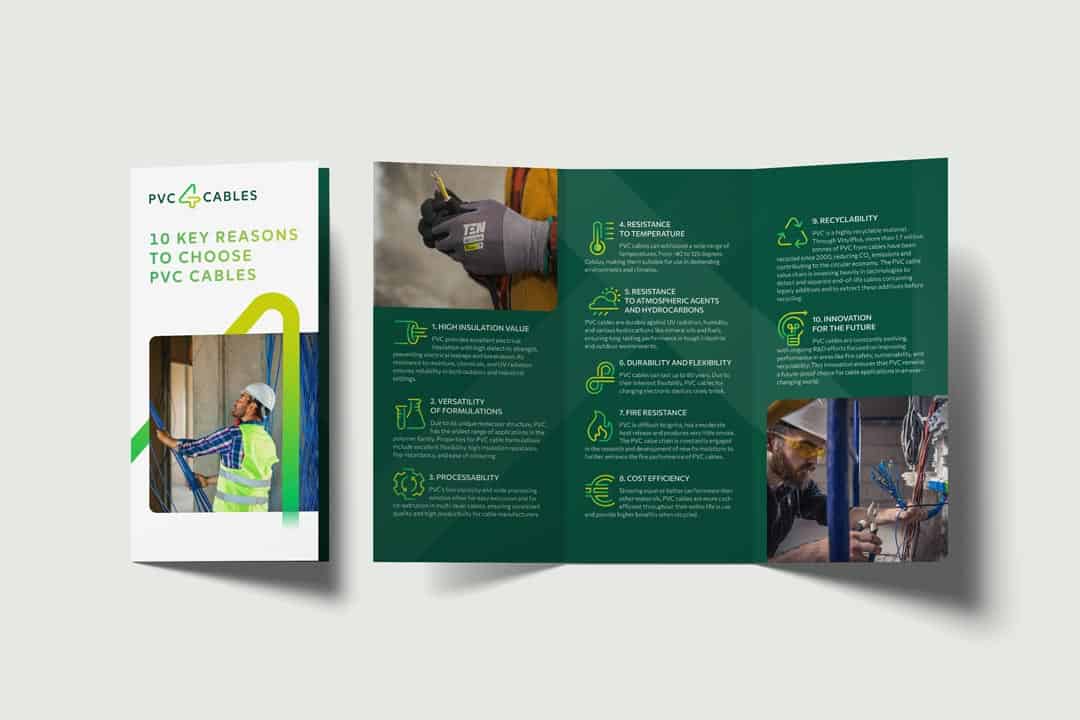Cables are essential for modern society as they play a critical role in communication, power transmission, transportation, and various industrial applications. Without cables, many of our modern conveniences and systems would not be possible. PVC cables are found in all sectors where transmission of electricity or data is needed. PVC cables have a vital role to play in shaping our digital future.
Discover why PVC is the material of choice for cables:
PVC provides excellent electrical insulation with high dielectric strength, preventing electrical leakage and breakdown. Its resistance to moisture, chemicals, and UV radiation ensures reliability in both outdoor and industrial settings.
Due to its unique molecular structure, PVC has the widest range of applications in the polymer family. Properties for PVC cable formulations include excellent flexibility, high insulation resistance, fire-retardancy, and ease of colouring.
PVC’s low viscosity and wide processing window allow for easy extrusion and for co-extrusion in multi-layer cables, ensuring consistent quality and high productivity for cable manufacturers.
PVC cables can withstand a wide range of temperatures, from -40 to 125 degrees Celsius, making them suitable for use in demanding environments and climates.
PVC cables are durable against UV radiation, humidity, and various hydrocarbons like mineral oils and fuels, ensuring long-lasting performance in tough industrial and outdoor environments.
PVC cables can last up to 80 years. Due to their inherent flexibility, PVC cables for charging electronic devices rarely break.
PVC is difficult to ignite, has a moderate heat release and produces very little smoke. The PVC value chain is constantly engaged in the research and development of new formulations to further enhance the fire performance of PVC cables.
Showing equal or better performance than other materials, PVC cables are more costefficient throughout their entire life in use and provide higher benefits when recycled.
PVC is a highly recyclable material. Through VinylPlus, more than 1.7 million tonnes of PVC from cables have been recycled since 2000, reducing CO2 emissions and contributing to the circular economy. The PVC cable value chain is investing heavily in technologies to detect and separate end-of-life cables containing legacy additives and to extract these additives before recycling.
PVC cables are constantly evolving, with ongoing R&D efforts focused on improving performance in areas like fire safety, sustainability, and recyclability. This innovation ensures that PVC remains a future-proof choice for cable applications in an everchanging world.












